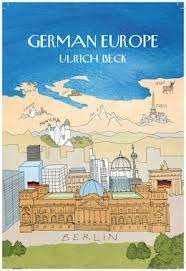German Europe

Editorial Polity
Fecha de edición septiembre 2014 · Edición nº 1
Idioma inglés
EAN 9780745665405
120 páginas
Libro
encuadernado en tapa blanda
Resumen del libro
The euro crisis is tearing Europe apart. But the heart of the matter is that, as the crisis unfolds, the basic rules of European democracy are being subverted or turned into their opposite, bypassing parliaments, governments and EU institutions. Multilateralism is turning into unilateralism, equality into hegemony, sovereignty into the dependency and recognition into disrespect for the dignity of other nations. Even France, which long dominated European integration, must submit to Berlin's strictures now that it must fear for its international credit rating.
How did this happen? The anticipation of the European catastrophe has already fundamentally changed the European landscape of power. It is giving birth to a political monster: a German Europe.
Germany did not seek this leadership position - rather, it is a perfect illustration of the law of unintended consequences. The invention and implementation of the euro was the price demanded by France in order to pin Germany down to a European Monetary Union in the context of German unification. It was a quid pro quo for binding a united Germany into a more integrated Europe in which France would continue to play the leading role. But the precise opposite has happened. Economically the euro turned out to be very good for Germany, and with the euro crisis Chancellor Angela Merkel became the informal Queen of Europe.
The new grammar of power reflects the difference between creditor and debtor countries; it is not a military but an economic logic. Its ideological foundation is German euro nationalism' - that is, an extended European version of the Deutschmark nationalism that underpinned German identity after the Second World War. In this way the German model of stability is being surreptitiously elevated into the guiding idea for Europe.
The Europe we have now will not be able to survive in the risk-laden storms of the globalized world. The EU has to be more than a grim marriage sustained by the fear of the chaos that would be caused by its breakdown. It has to be built on something more positive: a vision of rebuilding Europe bottom-up, creating a Europe of the citizen. There is no better way to reinvigorate Europe than through the coming together of ordinary Europeans acting on their own behalf
Biografía del autor
Ulrich Beck estudió Sociología, Filosofía, Psicología y Ciencia Política en Friburgo y Munich. Fue profesor en Münster, en la Universidad de Bamberg y desde 1992 en la Universidad Ludwig-Maximilian de Munich. También impartió docencia en la Universidad de Gales en Cardiff y en la London School of Economics. Fue editor de la revista Soziale Welt y miembro de la Comisión para el Futuro de los gobiernos alemanes de Baviera y Sajonia. Fue investido Doctor Honoris Causa por la UNED y por la univerdad Jyväskylä de Finlandia. Beck estudió aspectos como la modernización, los problemas ecológicos, la individualización y la globalización. En los últimos tiempos se dedicó también a la exploración de las condiciones laborales en un mundo de creciente capitalismo global, de pérdida de poder de los sindicatos y de flexibilización de los procesos del trabajo, una teoría enraizada en el concepto de cosmopolitismo. Beck contribuyó también a la creación de nuevos conceptos, como el de "sociedad del riesgo" y el de la "segunda modernidad".








